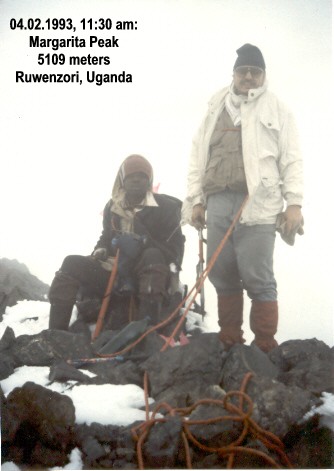Ethnicity Releasing Africa’s ”Suppressed Rage”
Wer ab und zu auf diesem Blog vorbeischaut, weiß, dass mich die Frage, wie afrikanische Werte und Elemente traditioneller Herrschaftsstrukturen mit den Ideen des modernen Staates verwoben werden können, umtreibt.* Mit dem Ziel, stabilere, überlebensfähige politisch Systeme zu erhalten. Auch habe ich bereits öfters meine Überzeugung ausgedrückt, dass Demokratien westlicher Provenience, wie das europäische Beispiel gezeigt hat, nur in Nationalstaaten gedeihen und überleben können. Obwohl in den folgenden Auszügen der Begriff „nation state“ am laufenden Band auftaucht, kann ich nicht erkennen, wo es in Afrika auch nur einen Nationalsaat geben sollte, der diese Bezeichnung verdient. Andererseits zeigen die Auszüge deutlich – und es lohnt sich, dem Link zu folgen, um den gesamten Artikel zu lesen –, warum die aufgrund europäischer Interessen entstandenen multi-ethnischen Gebilde keine Nationalsaaten hervorbringen konnten und können. Pessimistische Aussichten.
* siehe hierzu auch: Economic Commission for Africa, 2007: Relevance of African Traditional Institutions of Governance [pdf-Datei, 0,9 MB]
Auszüge Zeitungsartikel: “The key challenge is how African elites can work with their European creation in such a way that they are able to appropriate the various ethnic groups' histories and traditional values that form their nation-states for peace and progress. For scholarship and research, as Daniel Tettey Osabu-Kle makes clear in ‘Compatible Cultural Democracy: The Key to Development in Africa,’ part of the solutions of resolving some of the perennial African ethnic tensions and conflicts lies in ‘using modified, indigenous political structures and ideologies.’"
“Africans' false peace emanates from the fact that their traditional values do not technically drive their nation-states' progress but rather their ex-colonial ones, and in the ensuing confusion, creating false development processes among the over 2,000 ethnic groups with their over 3,000 dialects that form Africa - and creating all sorts of conflicts, some of which tension dates back to pre-colonial times, with the slightest mishap as the recurring ethnic conflicts in some parts of northern Ghana show. The false peace and deadly conflicts also show an Africa which two solitudes - the traditional and the ex-colonial neo-liberal/Western - not reconciled enough to harmonize the two Africas for peace and progress, as George B. N. Ayittey argues in ‘
“In
“In most of the 1980s, and good part of the 1990s, as African nation-states face severe crises and appear to be crumbling because of the rupture between ex-colonial legacies and African indigenous values, the London, UK-based African Confidential newsletter (January 6, 1995) explains that ‘There are signs everywhere that the era of the nation-state is fading and nowhere is this clearer than in Africa, where its roots are shallowest. The awkward marriage of the 'nation' in the sense of an ethnic coalition and the 'state' as the principal source of political authority is coming under pressure from above and below.’ The fact is, the roots of African nation-state are not shallow, for it stands firmly in African traditional values. What is shallowest is the ‘state,’ as ex-colonial creation, not skilfully and properly weaved into the ‘nation’ as a development project.”
“In a way, as Jeffrey Herbst analyses in ‘States and Power in Africa: Comparative Lessons in Authority and Control,’ the problem of state consolidation from the pre-colonial phase, through the short but intense interlude of European colonialism, to the modern era of independent states, is riddled with misunderstanding and many unresolved issues by African elites. As
“The idea isn't only to avoid ‘ethnic rage’ disguised under false peace but also as Pogo, the Walt Disney cartoon character, says, ‘We have met the enemy and he is us’ - that's the understanding that Africa's troubles, as George Ayittey explains in ‘Africa Betrayed,’ should start from its elites' bad behaviour and their inability to understand the continent from within its traditional institutions and values.” (Hervorhebungen KDL)



